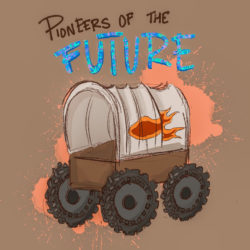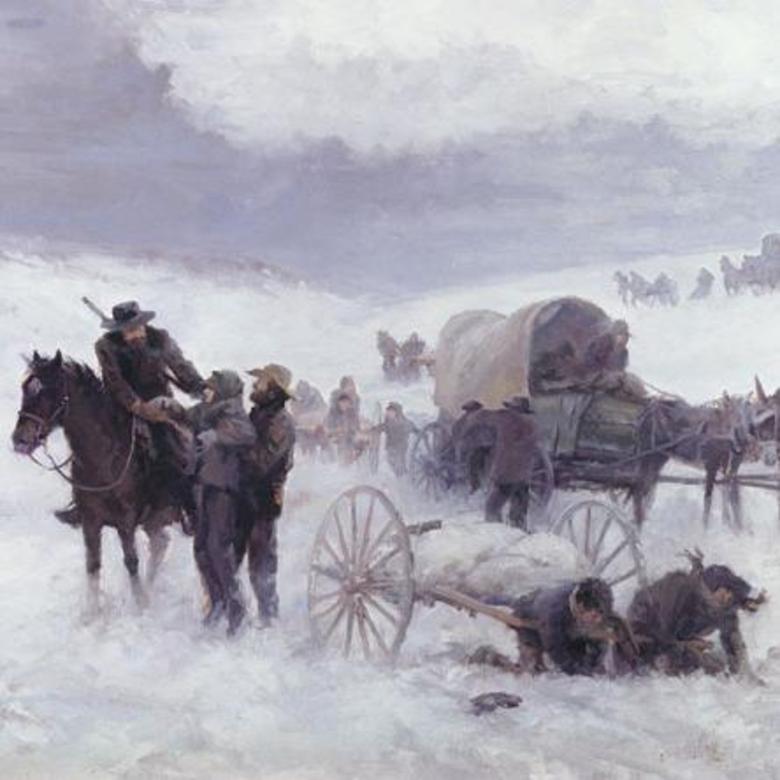From Langley Bailey’s account:
“My father went to gather some brush willows, there being no wood, to keep me warm. His hands became very “benumbed,” [and] he laid down by my side, told mother he was going to die. (It was not any trouble to die.) Mother took hold of him, gave him a shaken up, and told him she was going on to the valley. This wakened him from his stupor and gave him reason to try to stay alive.”
Jane Allgood Bailey wasn’t about to give up the light of her new religion. She would not be defeated by the cold, starvation, and sickness on the plains of Wyoming. She grasped hands with other women to wade through icy streams. They came out on the other side with their clothes frozen to them, but they carried on.
On the trek, her 18-year-old son, Langley, became so ill and weak that he had to be carried on the handcart much of the way. One morning he rose from his bed on the cart, which had frozen canvas for bedding, and went ahead of the company to lay down under a sagebrush and die, feeling that he was too much of a burden. When his faithful mother found him, she scolded him and told him: “Get on the cart. I’ll help you, but you’re not giving up!” Upon arrival in the Salt Lake Valley, Langley was still alive, but he weighed only about 60 pounds.

 Margaret Caldwell, age 40, had been widowed for nine years when she left Scotland for America with four of her children, ages 9 through 16. After her husband’s death, she had managed a boarding house, and with thrift and industry she saved enough to emigrate.
Margaret Caldwell, age 40, had been widowed for nine years when she left Scotland for America with four of her children, ages 9 through 16. After her husband’s death, she had managed a boarding house, and with thrift and industry she saved enough to emigrate. Joseph Elder, age 21, joined the Church in the Midwest in 1855. The next year, while he was attending McKendree College in Lebanon, Illinois, he decided to visit the Saints in St. Louis. There he met with Church leaders, who ordained him an elder and counseled him to change his plans so he could help the emigrants who would be crossing the plains that year. Feeling that it was his duty to serve, he left college and said farewell to his family and friends. He helped buy cattle and herd them to Florence, where he planned to stay until he could travel to Salt Lake City with a company of returning missionaries led by Elder Franklin D. Richards. However, when the Willie company arrived in Florence, emigration leaders approached Joseph and asked him to leave immediately with the company and drive an additional wagon, which would give them more provisions and supplies.
Joseph Elder, age 21, joined the Church in the Midwest in 1855. The next year, while he was attending McKendree College in Lebanon, Illinois, he decided to visit the Saints in St. Louis. There he met with Church leaders, who ordained him an elder and counseled him to change his plans so he could help the emigrants who would be crossing the plains that year. Feeling that it was his duty to serve, he left college and said farewell to his family and friends. He helped buy cattle and herd them to Florence, where he planned to stay until he could travel to Salt Lake City with a company of returning missionaries led by Elder Franklin D. Richards. However, when the Willie company arrived in Florence, emigration leaders approached Joseph and asked him to leave immediately with the company and drive an additional wagon, which would give them more provisions and supplies.